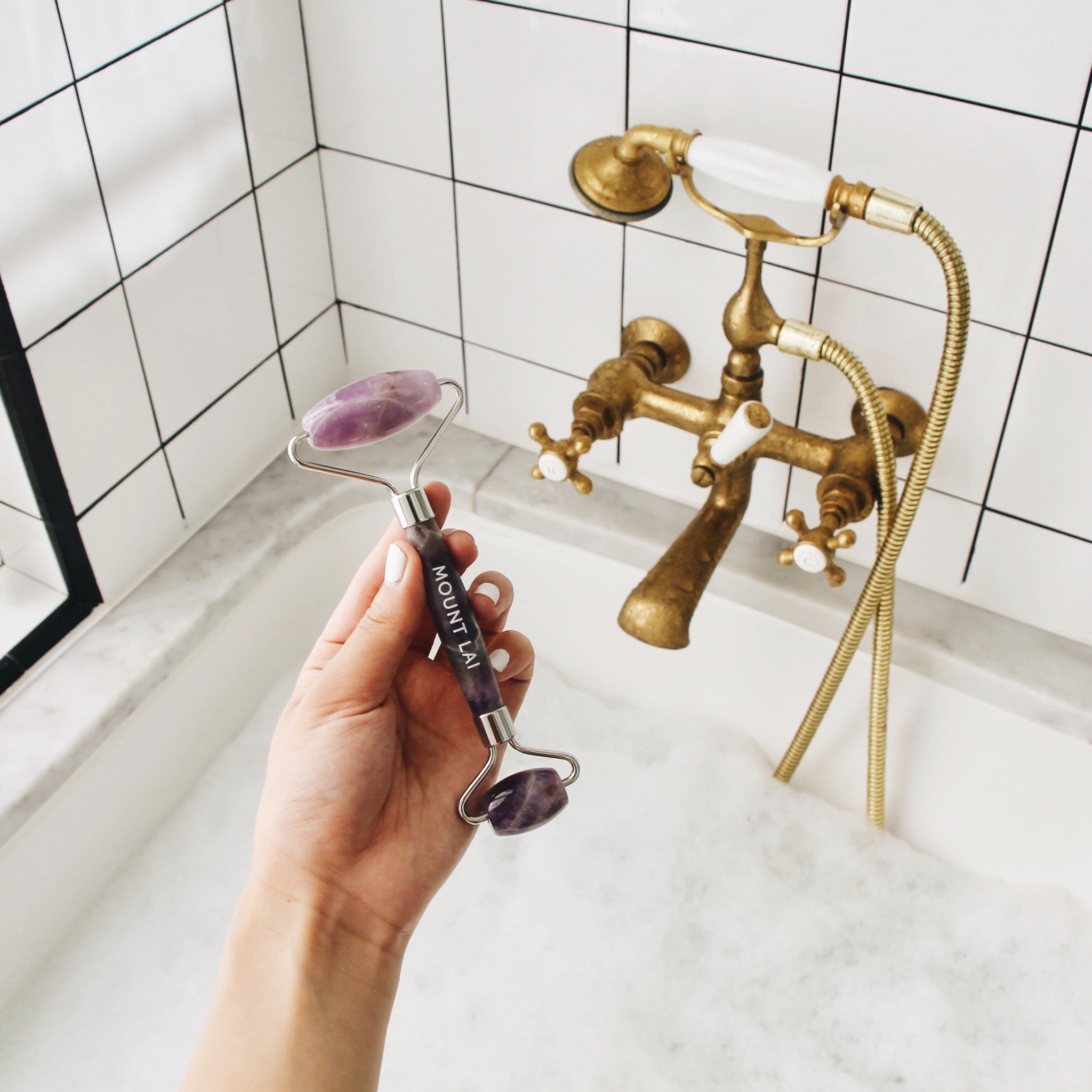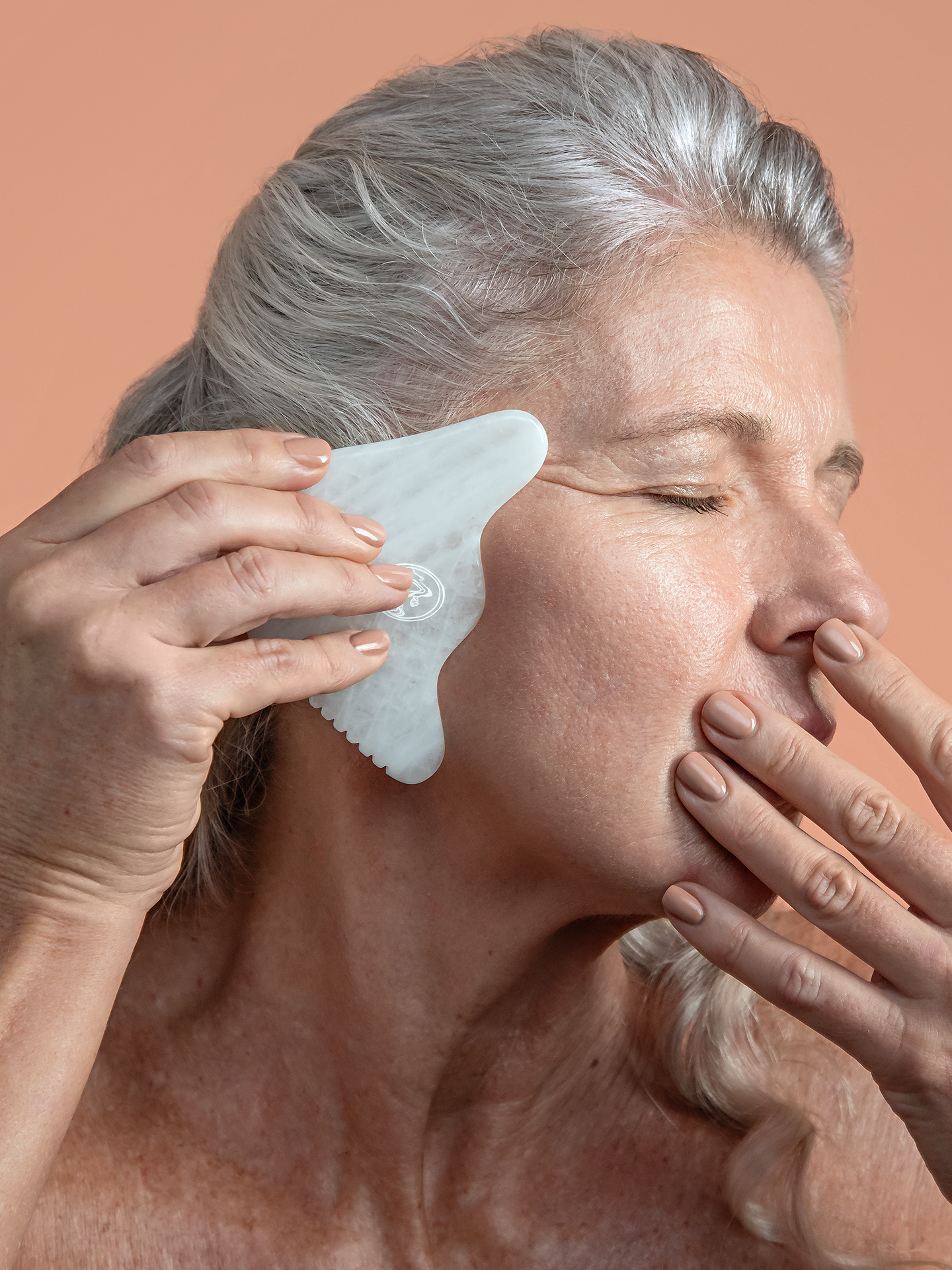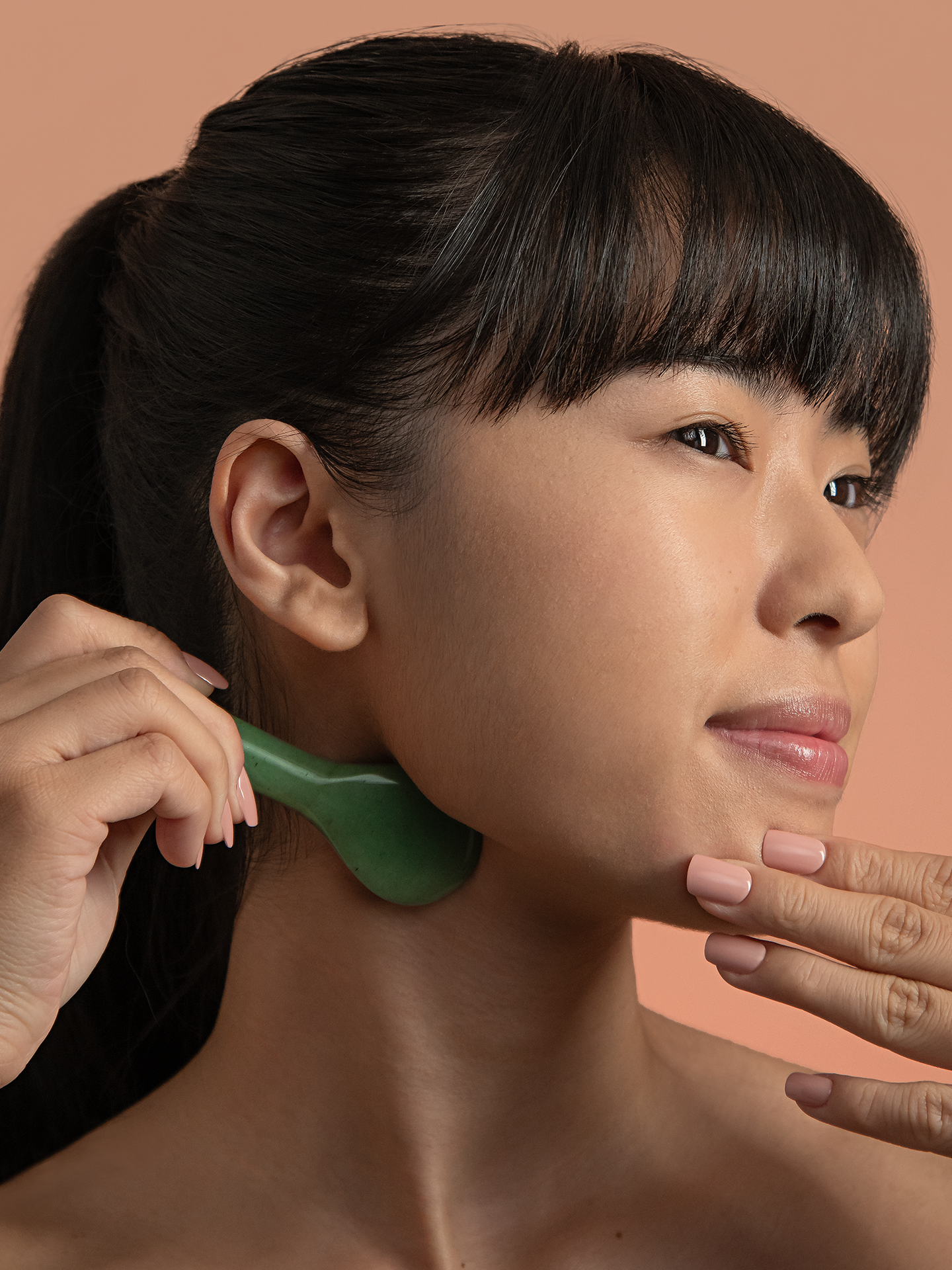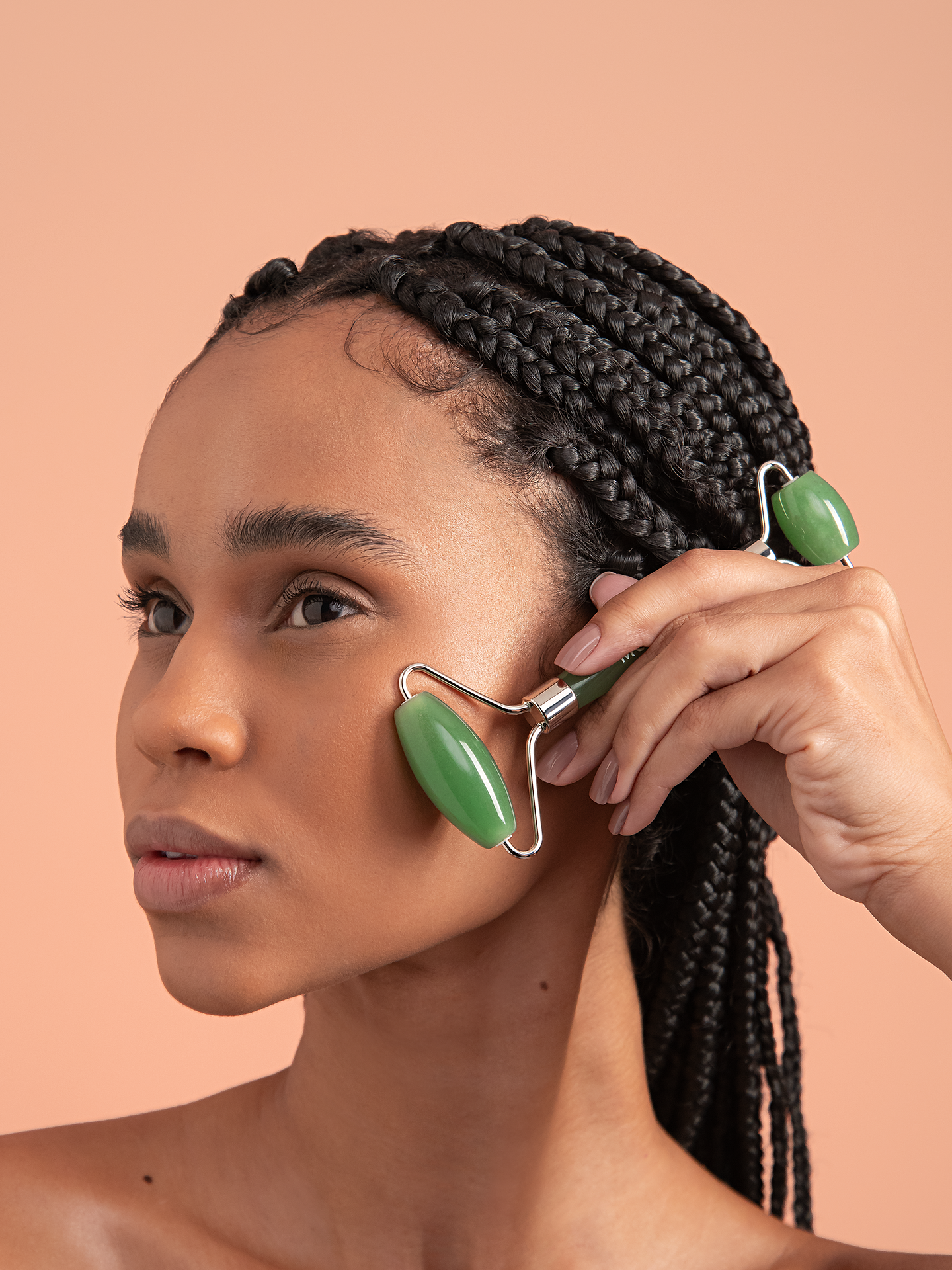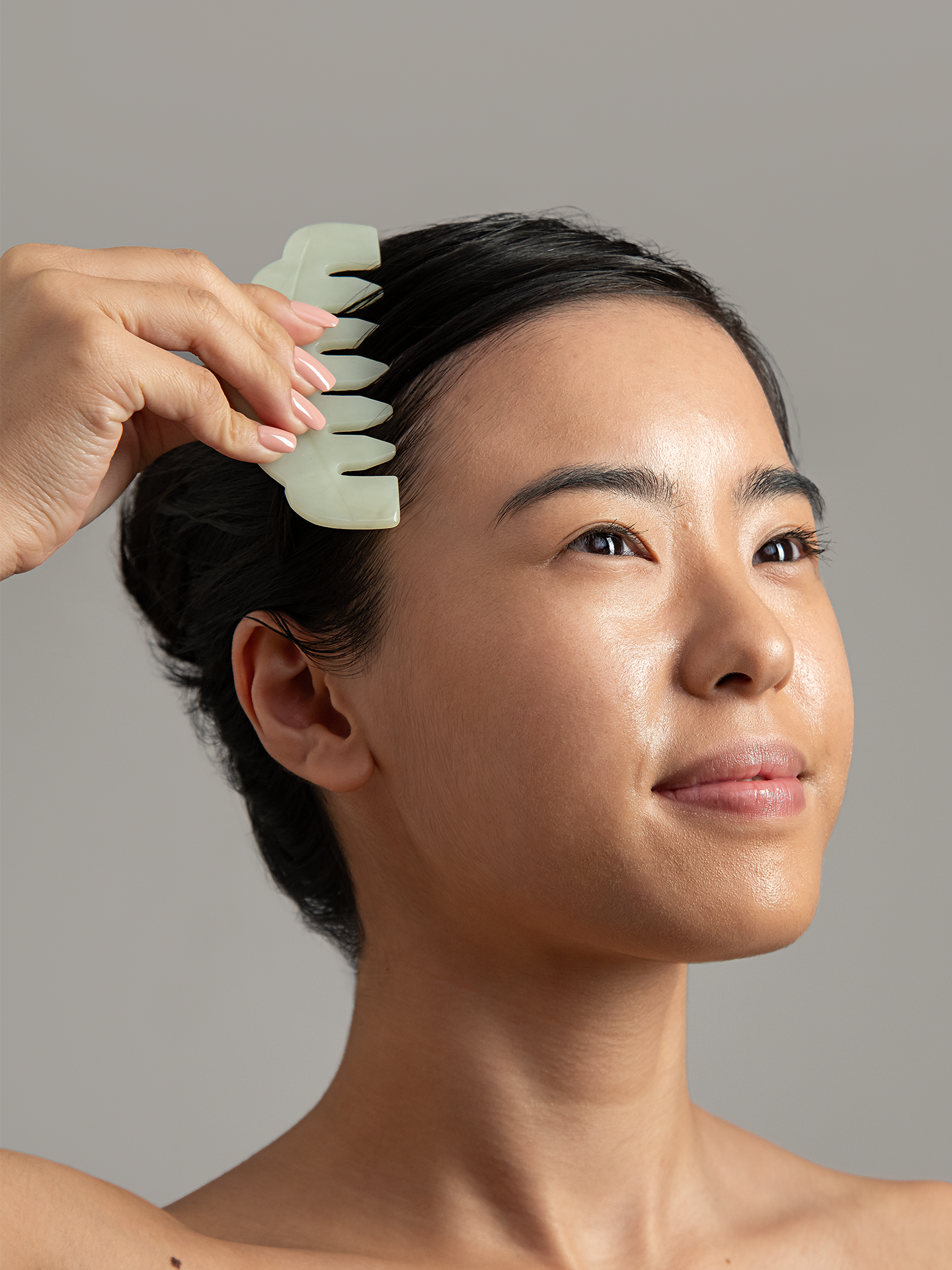Cleaning your facial tools is just as important as removing your make-up before bed. Just as you wash your make-up brushes to remove grime, cleaning your facial tools prevents the buildup of bacteria. After all, taking care of your skin also means to take care of the products you use—they’re just as important.

How do we clean facial tools + how often should we clean them?
For the same reason we want to use clean hands for washing our faces, we want to use clean tools when applying serums and facial oils. We understand that it is easy to forget to wash our tools regularly, but the process is a lot simpler than one might think. Not only does regular cleaning help prevent bacteria, but also helps preserve the quality of your tools.
Using a soft, like the soft bamboo cloths, we recommended wiping your facial tool after every use at a minimum. For a deeper clean, follow the steps below:
- Place your tools inside a medium bowl filled with warm water.
- With a gentle cleanser, gently scrub the tool with your hands. For facial rollers, clean around the stones and handle. Facial tools can be cleaned with cleansers for the face and/or make-up brushes. Disinfectants, bleach and alcohol wipes are safe to use and will not damage the stone.
- When drying your tools, use the same soft bamboo cloth to wipe the tool clean. Make sure to completely dry the tool before placing it back inside its Mount Lai box. Our packaging was specially designed to be a protective + convenient storage space for your tools, and can easily be recycled.
We recommend cleaning your tool with each use. You can also try cleaning your tools similar to how you wash your hands - under some running warm water with gentle hand soap!
Debunking Internet Myths
A common question we get is whether jade is porous because there is a concern that jade traps bacteria inside of it. The short answer to this question is: no, bacteria will not get trapped inside of your jade tools. As long as you properly clean your tools using the steps above, there should be no issues with bacteria. The same applies to our other stones; bacteria will form if you do not clean your tools often.

